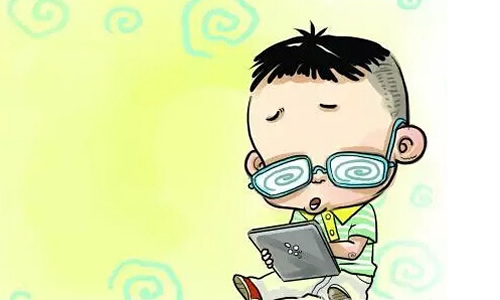(单词翻译:单击)
听力文本
This is Scientific American — 60-Second Science. I'm Steve Mirsky.
Got a minute?
"So we're inside, we're in fake lighting, we're not spending as much time outside in the context in which our visual system evolved."
Amanda Melin, assistant professor of anthropology & archaeology and of medical genetics at the University of Calgary. And all that sitting inside in dim light staring at screens has led to an epidemic of myopia—nearsightedness—among young people.
"The myopia epidemic is particularly strong in Asia and in urban Asian environments, where it is increasing to be upwards of 90 percent of teenagers are myopes."
Melin spoke February 20th at a press briefing at the annual meeting of the American Association for the Advancement of Science in Boston.
"So to be sure there's a genetic component, my father had glasses I have glasses. But we're increasingly realizing that the environments in which we're spending our time are playing a major role."
"And so a cohort study where some school age children were given 40 minutes or more time outside, those children had a 23 to 50 percent less likely chance of developing myopia than students at schools who were not given that same amount of outdoor exposure. And it looks to be dosage dependent, so the longer time you spend outside the less chance you have of developing myopia."

"So the exact mechanisms are not really known, so we really need a lot more research into this. But another major factor that's being implicated is near-work activities, so spending our time looking at computers, into microscopes, these things. And then as soon as we leave our work, what are we doing, we're on our mobile devices, that's also a very close activity."
"When we're engaged in near-focus tasks our eyes are actually working really hard, because the muscles have to accommodate the lens to focus that close. When we look off into a distance that's when our eyes are relaxing, so there could be something with that as well."
"When you're outside, the ambient light is...orders of magnitude brighter outside in outdoor lighting environments, so that probably has a very important role...we need to think about perhaps policies in place to get kids and young adults outside a bit more."
Thanks for the minute for Scientific American — 60-Second Science Science. I'm Steve Mirsky.
参考译文
这里是科学美国人——60秒科学。我是史蒂夫·米尔斯基。
有一分钟时间吗?
“我们在室内时处于人造光环境中,虽然我们的视觉系统是在室外演化的,但是我们现在在室外的时间很少。”
阿曼达·梅林是卡尔加里大学人类学和考古学及医学遗传学的助理教授。年轻人长时间坐在室内,在昏暗的灯光下盯着屏幕,会导致近视。
“近视现象在亚洲尤为严重,亚洲城市青少年的近视率已增长到90%。”
美国科学促进会年度记者招待会于2月20日在波士顿举行,梅林在会上发表了讲话。
“可以确定地讲,其中存在遗传因素,我父亲戴眼镜,我也戴眼镜。但是,我们逐渐意识到,我们所处的环境也是导致近视的主要原因。”
“在一项定群研究中,一部分学龄儿童每天有40分钟或更多的时间进行户外活动,与那些没有户外活动的儿童相比,前者患近视的几率要低23%至50%。这就像剂量依赖,也就是说,你在户外待的时间越长,你患近视的几率就越低。”
“目前我们还未掌握准确的机制,所以我们需要对这一问题进行更多研究。但是,导致近视的另一个主要因素是近距离工作,比如花时间看电脑、看显微镜等等。而我们一停下工作,就会去看移动设备,这也是非常近距离的活动。”
“当我们从事近距离工作时,我们的眼睛非常辛苦,因为肌肉必须让晶状体适应近距离聚焦。我们远望的时候,眼睛则在放松,所以,这可能也有一定的联系。”
“身处室外时,在户外照明环境下,背景光线的强度要高好几个量级,这可能也是一个非常重要的因素……我们现在需要考虑一些可行的方法,让孩子和年轻人多出去活动活动。”
谢谢大家收听科学美国人——60秒科学。我是史蒂夫·米尔斯基。
译文为可可英语翻译,未经授权请勿转载!
重点讲解
重点讲解:
1. stare at 凝视;盯着看;
例句:They stared at the strange sight in silent wonder.
他们惊讶地默默凝视那奇景。
2. lead to 招致;致使;导致;
例句:The lack of plan leads to overproduction of cars.
缺乏计划导致汽车生产过剩。
3. as soon as 一…就…;
例句:As soon as I sew up this job, we can go home.
我一干完这件工作,就可以回家了。
4. be engaged in 从事…的;忙于…的;
例句:He is engaged in studies in linguistics.
他从事于语言学的研究。


